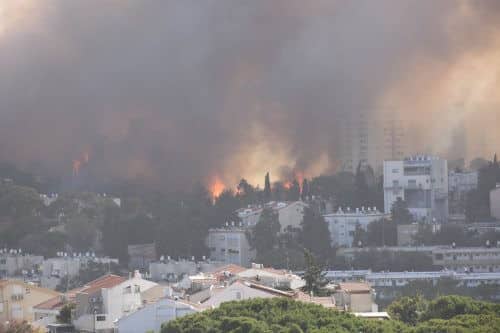Poisoned water and huge fires, bleaching coral reefs and heat records, biting fish and one Donald Trump: a year full of environmental events is coming to an end this month, and it's time to summarize what happened in Israel and the world / Zivata - Science and Environment News Agency
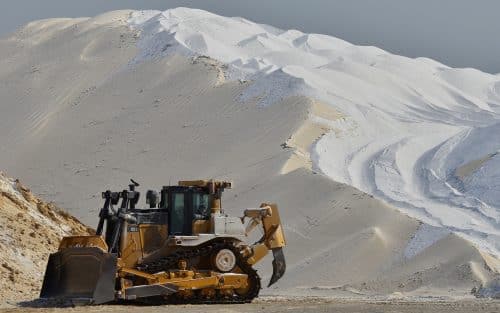
January - what to do with all this salt?
The Dead Sea plants draw water from the northern part of the Dead Sea and transfer it to evaporation ponds, where the precious potash sinks and is harvested. The problem is that huge surpluses of salt are created along the way, at a height of 20 cm per year, which raise the water level in the southern basin and endanger the hotels on the beach. in January Approved by the National Committee for the Planning and Construction of National Infrastructures (and TL) the salt harvest plan, under which the excess salt will be transported on a conveyor belt to the northern basin of the Dead Sea. Although the plan will temporarily solve the problem of the level in the southern Dead Sea, it will not save the North of the Dead Sea, which suffers from a level drop of one meter per year and continuous damage to the infrastructure and the unique natural values of its shores.
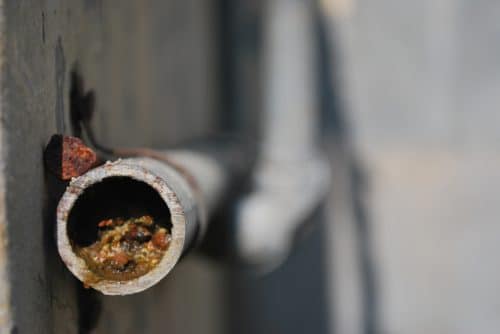
February - small heads in Haifa, poisoned water in the USA
It may feel like distant history, but just a few months ago the country was buzzing with the interim results of A study conducted in Haifa, who pointed out that in three areas of the city where abnormal air pollution was measured, babies were born with a lower than average head circumference (microcephaly). The results of the study created a great panic in the public and also a heated debate regarding the validity of the findings between all the parties involved: the municipality, the ministries of health and environmental protection and the researchers themselves. But the bottom line has not changed: in Haifa we continue to deal with air pollution from industry and transportation, the health consequences of which are only becoming clearer over the years.
Meanwhile, in the city of Flint in the state of Michigan in the United States, an affair exploded The poisoning of the water with lead, which affected thousands of children in the city. Despite repeated warnings from doctors and public health experts, water high in lead was pumped into the city's homes for more than a year. Exposure to high levels of lead during childhood can cause an irreversible effect on the nervous system and brain. For thousands of Flint residents, the government's intervention to solve the crisis may be too late, and they will suffer health damage later in their lives.

March - bags or not to be?
It will go into effect this January, but it was approved in first reading already a year ago: the "Bag Law", which will require food chains to sell plastic bags to consumers at a price of 10 shekels. The purpose of the law is to reduce the plastic waste that finds its way into the environment and fatally harms animals, and especially in marine animals. In the year that passed, the law was softened, and the price of a bag, which was initially 30 agora, dropped to 10 agora due to pressure from various parties. While in Israel the campaign on plastic bags is still far from over, abroad they have long since switched to paper bags or For whole grocery stores without plastic.
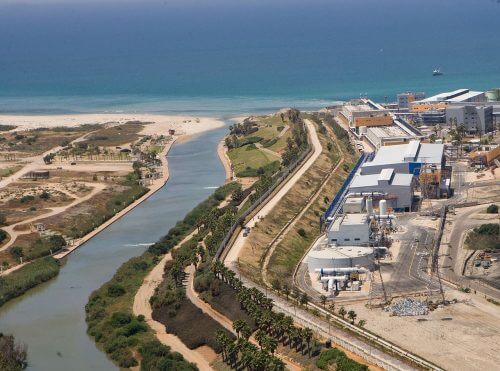
April - deadly water
In recent years, Israel has become a global water power. The desalination facilities provide us with 75 percent of our domestic water consumption, and a large percentage of the bio water
Ours undergoes a purification process and is used to irrigate agricultural crops. But there is a problem: the desalinated water does not have enough magnesium, which causes an increased incidence of heart disease in areas where a high percentage of desalinated water is consumed. In April, A study that revealed the connection between salted water and heart disease made the Ministry of Finance agree finance the pilot that the Ministry of Health already requested in 20122 to restore magnesium to the water.
May - why is the coral reef in Australia no longer colorful?
A team of Australian researchers completed a series of thorough aerial surveys of Australia's Great Barrier Reef in May. Their results confirm the fear: The Royal Reef, which is the largest of the world's reefs and can also be seen from space, is now undergoing the hardest coral bleaching in its history - a process of the release of the cooperative algae that give the coral its color, which causes severe damage to the coral colony and even its death. The main reason for the bleaching of the reef is the warming of the sea water, as a result of climate change. There is a chance that some of the corals in the reef will be able to recover, but in the meantime, hundreds of tourists are flocking to see this natural wonder before it disappears, and burden the coral's recovery abilities.
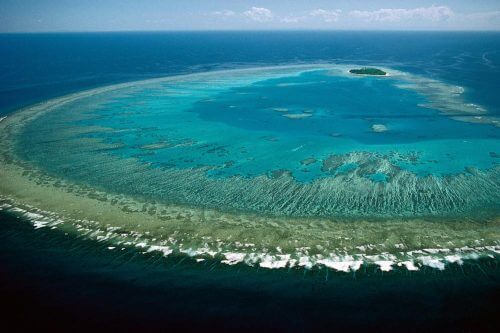
June - while you were sleeping
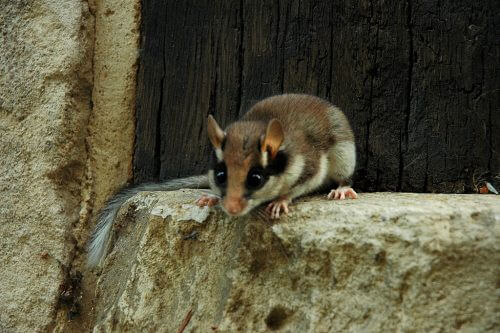
Residents of Beer Sheva: If you found a furry rodent in the yard with black eyes and huge ears sleeping upright, you may have been lucky and saw The rocks are dozing, which easily wins the title of "the cutest rodent you've never met". A study presented in June showed that the rare rodent, which hibernates between rocks during the winter, expanded its range and reached from its home in the Negev Mountains to the Beer Sheva and Hatzeri area. This is good news for nature lovers in general and rodent lovers in particular, who can finally see the cute creature with their own eyes.
July - July-August heat
 The summer months of 2016 will be remembered as The hottest ever measured on Earth. They also marked a 16-month streak of the highest average temperatures since records began. Scientists associate the increase in average temperatures over the past year with the El Nino phenomenon, which is a climatic phenomenon that causes warming in large parts of the earth. It is possible that in the next year or two, with the disappearance of the El Niño phenomenon, the pace of breaking temperature records will slow down; But in any case, we will be left with climate change and with average temperatures much higher than the 20th century.
The summer months of 2016 will be remembered as The hottest ever measured on Earth. They also marked a 16-month streak of the highest average temperatures since records began. Scientists associate the increase in average temperatures over the past year with the El Nino phenomenon, which is a climatic phenomenon that causes warming in large parts of the earth. It is possible that in the next year or two, with the disappearance of the El Niño phenomenon, the pace of breaking temperature records will slow down; But in any case, we will be left with climate change and with average temperatures much higher than the 20th century.
Besides heat stress, climate change also causes dryness in our region, which increases the intensity and frequency of dust storms. These dust storms may harm the health of children and the elderly and those suffering from respiratory diseases. New research He discovered that the dust storms also carry with them a high electrical charge, and therefore can disrupt telephone and airplane communication systems.
August - Olympic record in felling trees
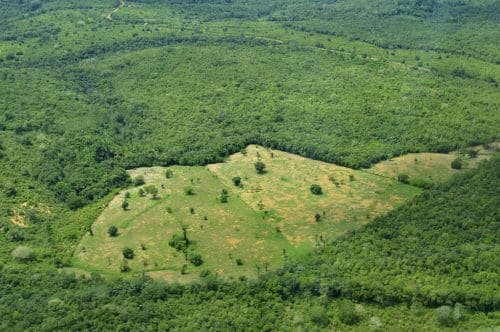
The Olympic Games that took place in Brazil this summer turned the world's attention to the huge country, where two-thirds of the world's rainforests are located. There is no greater symbol than the rainforests for the fight to preserve the environment: the rainforests stand at the heart of the constant conflict between the giant corporations, who want to clear the forests and turn them into pastures, and the environmental organizations, who fight (sometimes even physically) to preserve the forests, the local tribes and the many animals that live in them. Just before the start of the Olympic Games It turned out that Brazil broke a 12-year record in the amount of space it burnedGod. The human spirit may have overcome the sporting challenges, but with the environmental challenge it still has a hard fight.
September - the panic of the biting fish
 Many bathers at the end of the bathing season complained this year about Bites are especially painful in the legs, those that ended in real bleeding. But don't worry, these are neither piranhas nor the shark from "Jaws" - welcome the striped sargus, a local fish in the Mediterranean that lives among the rocks, and its soft offspring look for food in the sand, and sometimes find it in the form of dead skin on the feet. Reports of fish bites are nothing new and were received even a decade ago; But it is possible that this year the bites were stronger, and this is also due to climate change - which caused the warming of the sea, advanced the breeding season of the fish, and caused the fish in the bathing season to be larger and their bite stronger. So in other words - if you don't want to be bitten by fish, Do something to stop climate change.
Many bathers at the end of the bathing season complained this year about Bites are especially painful in the legs, those that ended in real bleeding. But don't worry, these are neither piranhas nor the shark from "Jaws" - welcome the striped sargus, a local fish in the Mediterranean that lives among the rocks, and its soft offspring look for food in the sand, and sometimes find it in the form of dead skin on the feet. Reports of fish bites are nothing new and were received even a decade ago; But it is possible that this year the bites were stronger, and this is also due to climate change - which caused the warming of the sea, advanced the breeding season of the fish, and caused the fish in the bathing season to be larger and their bite stronger. So in other words - if you don't want to be bitten by fish, Do something to stop climate change.
October - count trees instead of calories

This year's Tishrei holidays were a great opportunity to focus on the lesser-known side of holiday meals: The environmental price of food. Huge amounts of environmental resources such as water and soil are invested in food production, and greenhouse gases such as methane and carbon dioxide are emitted into the air. In the "production" process of a kilo of beef, that is - in the process between raising the cow and its arrival on the plate - about 60 kilos of carbon dioxide are emitted into the atmosphere, which is much more than the total carbon dioxide emissions emitted during the private car ride for the holiday dinner. Our consumer decisions in the field of food have a great impact on the environment (and of course also on health), so it is useful to know the environmental cost of the food we eat.
November - between Marrakesh and Washington
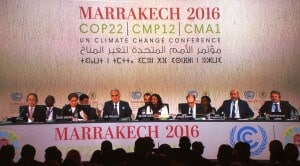
In November, one year after the historic climate conference in Paris, it was held in Marrakesh, Morocco 22nd climate conference no, where the Paris Agreement was implemented. Paris Agreement It is an international agreement that was signed a year ago in which the nations of the world decided to unite in order to stop global climate change and work together to reduce greenhouse gas emissions and stop the effects of climate change. This year, at the conference in Morocco, the last open ends were closed and the way was paved for the implementation of the agreement.
An embarrassing incident that happened during the conference well illustrates the fragility of the agreement: during the talks in Morocco, Mark Moreno, a well-known American climate change denier and an ardent supporter of Donald Trump, stood next to a life-size doll of Trump, tearing up the Paris agreement with his hands. The public stunt expresses the President-elect Trump's stated position on climate change: For him, this is nothing more than a plot designed to harm the American economy, and therefore his cooperation in the implementation of the agreement is questionable. Without the Americans, the Paris Agreement could be empty of content, and the enormous efforts invested in order to stop the global consolidation could go down the drain.
December - Israel is burning
Six years after the Carmel fire, extreme dry conditions and an impending winter once again set the stage for a week of fires across the country. Thousands of dunams of natural forest were burned, but the focus of interest in this year's fires were the settlements that were affected - including Haifa, Zichron Yaakov, Netaf, Halamish and Beit Meir (fortunately, houses were damaged and there were no casualties). Now, after the fire has subsided, the rain has finally arrived and with it the restoration efforts also begin. To allow the soil and vegetation to recover quickly, The experts ask the public Avoid visiting the damaged forests and refrain for at least a few months - after which we will already see a new green layer on the damaged land.
